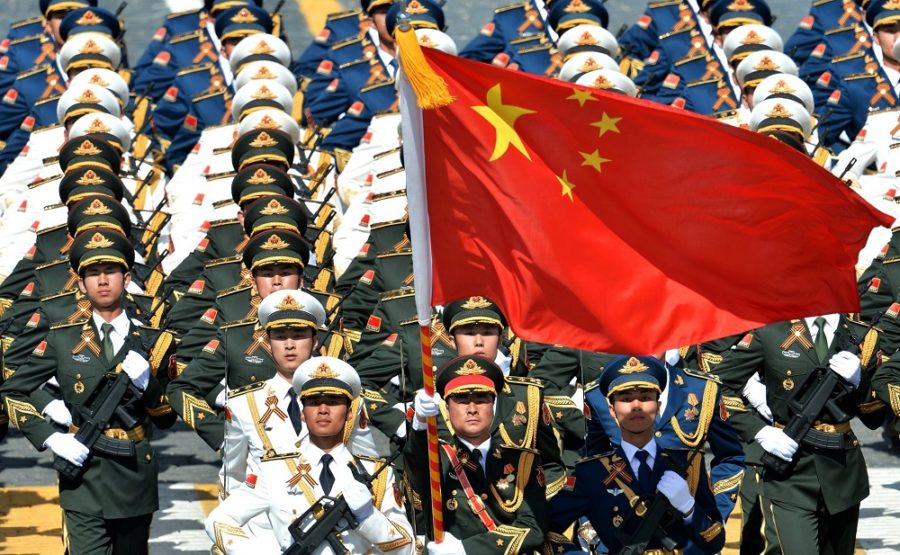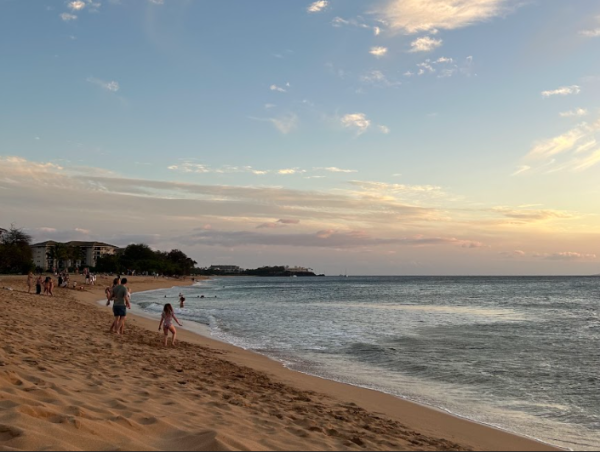China’s aggression towards Taiwan: where the U.S. stands
The People’s Republic of China’s aggression in the South Asian Pacific and its blatant attempt at forceful reunification with Taiwan, a long since sovereign nation, tested the resolve of the United States and the Biden Administration. In a clear and no uncertain response, Secretary of State Anthony Blinken bluntly stated the Biden Administration’s forceful deviance, calling back the Chinese delegation after opening remarks at the Alaska summit: “It’s never a good bet to bet against America.” Secretary Blinken’s indignant response reveals the major dramatic shift in how the new administration intends to confront and handle China’s (PRC’s) increasingly aggressive competition to global U.S. domination.
“It’s never a good bet to bet against America.”
-Secretary of State Anthony Blinken
China’s intent is more crystal clear than ever: it is playing for keeps. Not only is China aggressively moving towards dominating the world stage in place of America, challenging the liberal democracies with its authoritarianism across the globe, but also aiming to control all the countries in its geostrategic backyard; South Pacific Asia, including the Philippines, Vietnam, Australia, and Taiwan. Not since the Cold War era has China and the U.S. been at such confrontational odds. Based on the opening remarks during the Alaska meeting by both sides, the U.S. delegation, which came prepared for a confrontational meeting, caught the Chinese delegation off-guard; its blatantly-worded list of grievances, presented as if the opening salvo of a new cold war between the two countries.
Sending a delegation of unofficial-official former diplomats to Taiwan this past week on the heels of the March 22 meeting in Alaska, the Biden Administration not only once again clarified U.S. commitment to Taiwan as “rock solid” and “consistent with the…best interests of the people of Taiwan” and the “maintenance of peace and stability in Asia,” the Administration no longer advocates the easing of tensions with China at the “highest level.”
With this shift in the U.S. approach towards the People’s Republic of China, President Biden has abandoned the decades-in-place U.S. “policy of ambiguity” toward Taiwan. This represents a strategic deviation from the U.S. commitment through conciliation and cooperation in the peaceful resolution of the cross-strait issues. These latest moves by the Biden Administration’s recognition that the U.S. and China are in competition, but also represents the toughest line toward Beijing since the Cold War.
The Chinese delegation did not appreciate being confronted about its aggressive, warmongering actions in the South Pacific and its continued threats to retake what it calls its territory – Taiwan. Ordinarily, in these kinds of meetings with China, the U.S. appears to be more conciliatory when China’s ambitions are not so clear. However, now those aims are perfectly clear. As China fervently and unabashedly pursues its aim of military and technological supremacy, its coercion of Australia’s economics, and its bullying pressure on Taiwan, talks of cooperation may now be a waste of time.
The U.S. poses a threat to the ruling Chinese Communist Party, and the CCP poses a threat to every democratic nation on Earth. Actions authorized by the CCP constitute a clear and present threat as a prelude for the invasion of Taiwan. In 2016, when Taiwanese President Tsai Ing-wen rejected the PRC’s assertion that Taiwan (under the PRC’s ‘One China’ policy) was part of China, PRC President Xi Jin Ping cut off communication with Taiwan, pressuring Mr. Tsai to accept the ‘One China’ policy.
As a response, the U.S. increased arms sales to Taiwan, and in August then-incumbent President Trump sent U.S. Health and Human Services Secretary Alex Azar to Taiwan. Adding to the tension, the U.S. sent the USS Theodore Roosevelt aircraft carrier group into the Strait to “conduct routine operations,” as part of surface and air military exercises to counter naval, surface, or air attacks on Taiwan, launching fighter-bombers, attack helicopters, and reconnaissance aircraft.
The U.S. military commander for the Indo-Pacific region, Admiral Philip S. Davidson, stated recently that China could try to reclaim Taiwan by force within the next six years. For decades, the United States, as part of its war games scenario, has anticipated China’s attempt at reunification of Taiwan using military force. In order to nullify any possible defense of Taiwan by the U.S. naval forces, China would either attempt to intimidate the 7th Fleet from patrolling the Taiwan Strait, or attempt to distract the U.S. fleet, using an incident to draw the carrier groups away from Taiwan.
In a scenario outlined in the British novel Kilos, if the nearest U.S. carrier battle group were diverted to an intentionally-instigated crisis in the Indian Ocean, any military assistance from the U.S. Navy would require at least three to four days to reach Taiwan in case of a Chinese attack on the island. Despite the extensive military hardware and arms sold to the Taiwanese, experts estimate Taiwan could only repel an invasion by the massive Chinese Army for three days. By the time the U.S. carrier battle group arrived geographically close enough to help Taiwan, the invasion and occupation by Chinese forces would be complete. Despite being from a work of fiction, such an aggressive move would not be out of the realm of possibility.
As tensions escalate between the U.S. and China, the thin line of U.S. diplomatic commitment changes the use of the preposition, to support not only the people on Taiwan, but also to support the people of Taiwan. A single word changes the entire diplomacy of the United States.
Perhaps the most expansive leverage the U.S. has over China’s blatant expansionism is the quad countries of Japan, South Korea, Australia, and India because of their military value to repel an attack on Taiwan. Japanese Defense Minister Nobuo Kishi’s reiteration of his country’s support of any attempt to threaten the “status quo in the East or China Seas,” represents the most potent barrier to China’s blatant aggression in the South China Sea…and on the world stage.
Sources Consulted
Reynolds, Isabel, and Dominic La. “U.S. Urges China To Talk With Taiwan In Early Nod From
Biden.” MSN/Bloomberg. 23 Jan 2021. www.msn.com/en-us/news/world/us-urges-china-
to-talk-with-taiwan-in-early-nod-from-biden.
Wright, Thomas. “The U.S. and China Finalloy Get Real With Each other.” Brookings.
March 22, 2021. https://www.brookings.edu/blog/order-from-chaos/2021/03/22/.
Additional Sources Consulted
Atwood, Kylie and Jennifer Hansler. “Biden Dispatches Unofficial Delegation To Taiwan.”
CNN. Updated 13 April 2021.
https://www.cnn.com/2021/04/13/politics/us-unofficial-delegation-taiwan/index.html.
Baldor, Lolita. “Sharp Jump In U.S. Navy Transits To Counter China Under Trump.” AP.
15 March 2021. https://apnews.com/article/politics-beijing-south-china-sea-china-taiwan.
Chen, Kelvin. “Taiwan Military Researcher Observes Australia’s Efforts To Counter Chinese
Expansion.” Taiwan News. 7 Feb 2021. https://www.taiwannews.com.tw/en/news/4122204.
Deng, Chao. “Biden Brushes Off China’s Complaints, Sends First Delegation to Taiwan.” WSJ.
Updated April 14, 2021
Grady, John. “Former State Official Says Pacific Nations Must See ‘Consistent and Reliable’
U.S. Presence to Counter China.” USNI. 11 March 2021.
https://news.usni.org/2021/03/11/former-state-official-says-pacific-nations-
must-see-consistent-and-reliable-us-presence-to-counter-china.
Sevastopula, Demetri, and Katherine Hille. “US Admiral Says Chinese Military Activity
Rising In South China Sea.” 10 Feb 2021.
https://www.ft.com/content/93294101-be11-41ef-8b54-c4bd83d559e5.
“Taiwan, US Coast Guard Agreement Aims To Counter China’s Expansion: Analyst.” ANI.
https://www.aninews.in/news/world/asia/taiwan-us-coastguard-agreement-aims-
to-counter-chinas-expansion-analyst20210328002508/.
“U.S. President Joe Biden Warns China Over Expansionism In Asia.” WION Web Team,
Washington. 28 Jan 2021. https://www.wionews.com/world-359774.













